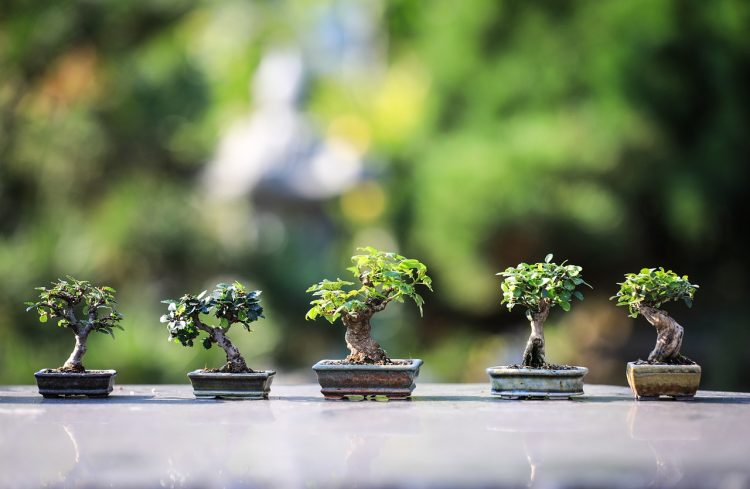In today’s fast-paced world, finding ways to reduce stress and enhance mental well-being is more important than ever. One of the most rewarding and accessible activities that offers profound mental health benefits is gardening. Whether you have a small balcony filled with potted plants or a sprawling backyard garden, spending time tending to plants can significantly improve your mood, reduce anxiety, and foster a sense of calm. The connection between humans and nature is deeply rooted, and gardening is an activity that nurtures this bond, promoting mental and emotional well-being in powerful ways.
1. Reducing Stress and Promoting Relaxation
Gardening has a unique ability to melt away stress. The simple act of digging in the soil, planting seeds, and caring for plants provides a natural form of therapy that brings immediate and lasting relaxation.
The Calming Effect of Nature: Being in a garden, surrounded by greenery and fresh air, naturally helps reduce levels of cortisol, the hormone associated with stress. Spending just 30 minutes tending to plants can significantly lower stress levels, providing the same calming effect as activities like yoga or meditation.
Mindfulness in Motion: Gardening is an inherently mindful activity. It requires you to focus on the present moment—whether you’re carefully watering seedlings or pulling weeds—and this focus helps quiet the mind. Practicing mindfulness through gardening can reduce feelings of anxiety and promote a sense of tranquility. The repetitive actions involved in gardening also offer a rhythm that can be meditative, allowing you to temporarily let go of worries and experience the moment fully.
2. Boosting Mood and Fighting Depression
There’s something about being surrounded by nature that just makes us feel better. Gardening, in particular, has been shown to help boost mood and combat symptoms of depression, thanks to a combination of physical activity, exposure to sunlight, and the simple joy of nurturing life.
The Joy of Nurturing Life: Watching a plant grow from a tiny seedling into a flourishing flower or vegetable can bring a profound sense of accomplishment and joy. This feeling of nurturing life helps release endorphins—the body’s natural mood enhancers—which can have a positive effect on those struggling with depression.
Sunshine and Serotonin: Gardening often means spending time outdoors, which naturally increases exposure to sunlight. Sunlight boosts serotonin levels in the brain, which helps regulate mood and ward off depressive feelings. Just spending time in the sun while working in your garden can make a big difference in lifting your spirits.
Connection to Nature: Being disconnected from nature can contribute to feelings of loneliness or sadness. Gardening helps reestablish this lost connection, providing a sense of rootedness and belonging. Working in a garden allows you to connect with the cycles of nature, from the changing seasons to the daily growth of plants, fostering a sense of continuity and hope.
3. Providing a Sense of Purpose and Achievement
Having a garden gives you something to care for, providing a sense of purpose that can be particularly beneficial during challenging times. The sense of accomplishment that comes from seeing your hard work bloom and grow can be incredibly satisfying.
Setting and Achieving Goals: Gardening is full of small, achievable goals—whether it’s planting a new flower bed, growing your first tomato, or keeping a houseplant alive. These goals provide purpose and focus, giving you something positive to work towards. Each achievement, no matter how small, boosts self-esteem and can make you feel more capable and in control.
Nurturing Responsibility: Caring for plants involves responsibility, and this can be particularly beneficial for those who are struggling with motivation or direction. The simple acts of watering, weeding, and tending to a garden foster a sense of responsibility and routine, which can provide stability and fulfillment.
A Tangible Impact: Unlike many other activities, gardening offers tangible, visible results. You can see the direct impact of your efforts as flowers bloom, vegetables grow, and your garden flourishes. This visible progress can be a powerful motivator and a reminder that your efforts have real, positive outcomes.
4. Physical Activity and Its Mental Health Benefits
Gardening isn’t just good for your mind—it’s also good for your body. The physical activity involved in gardening contributes to overall mental health by releasing endorphins and helping you feel more energized.
Exercise in Disguise: Gardening involves many forms of exercise, from digging and weeding to raking and planting. These activities provide moderate physical exercise, which helps release endorphins, the body’s natural “feel-good” hormones. Regular physical activity has been shown to reduce anxiety, alleviate depression, and improve overall mood.
Reducing Tension and Fatigue: Physical activity can also help reduce muscle tension and mental fatigue. Spending time gardening, whether you’re lifting pots or pulling weeds, works different muscle groups and helps relieve built-up tension. The fresh air and movement work together to leave you feeling more relaxed and less mentally exhausted.
Improving Sleep Quality: Physical exertion, combined with time spent in natural light, can also improve sleep quality. Better sleep leads to better mental health, helping you feel more rested, energized, and ready to take on each day.
5. Enhancing Social Connections
Gardening can also be a social activity, offering opportunities to connect with others who share your interests. These social connections are vital for mental health, providing support, camaraderie, and a sense of belonging.
Community Gardens: Participating in a community garden can be a great way to meet new people and develop friendships. Working alongside others in a shared space encourages cooperation, teamwork, and the exchange of ideas. The sense of community and shared purpose that comes from gardening with others can help combat loneliness and provide a network of support.
Family Gardening Projects: Gardening can also be a wonderful family activity. Working together to plant a vegetable garden or create a flower bed fosters bonding, communication, and shared accomplishment. It’s a way for family members of all ages to connect with each other while creating something beautiful together.
Sharing the Harvest: If you grow fruits, vegetables, or flowers, sharing the harvest with friends and neighbors can be incredibly rewarding. This simple act of giving helps build stronger social bonds and brings a sense of joy and generosity to the gardening experience.
6. Cultivating Patience and Acceptance
Gardening is a gentle reminder that good things take time. Plants don’t grow overnight, and the process of nurturing them teaches patience and acceptance—valuable qualities that contribute to better mental health.
Learning to Wait: In a world where we often expect instant results, gardening teaches us to slow down and wait. Watching a seed sprout or a bud slowly bloom into a flower reminds us that growth is a gradual process. This cultivated patience can help reduce anxiety and improve emotional resilience.
Embracing Imperfection: Gardens are naturally imperfect—plants grow at different rates, weather can be unpredictable, and sometimes, pests find their way in. Gardening encourages us to embrace imperfections and adapt to changing circumstances, teaching us that it’s okay when things don’t go exactly as planned. This acceptance can help reduce stress and foster a more positive outlook on life.
Finding Joy in the Journey: Gardening is not just about the end result—it’s about enjoying each step of the process, from planting seeds to watching them grow. This focus on the journey rather than the destination helps cultivate a sense of joy and appreciation for the present moment.
7. Sensory Engagement for Mental Well-Being
Gardening is a sensory-rich activity that engages sight, sound, touch, and even smell and taste, all of which can contribute to improved mental well-being.
Colors and Scents: The vibrant colors of flowers, the textures of leaves, and the scents of herbs and blooms all stimulate the senses. Exposure to these sensory experiences can evoke positive emotions, reduce anxiety, and create a sense of connection to the environment.
Hands in the Soil: There’s something profoundly grounding about working with your hands in the soil. Studies have shown that contact with certain beneficial bacteria in soil can actually increase serotonin levels, boosting mood and reducing anxiety. This physical connection to the earth is part of what makes gardening such a therapeutic activity.
Fresh Harvests: Harvesting and tasting herbs, fruits, and vegetables you’ve grown yourself is a rewarding sensory experience. The tastes and scents of fresh produce provide satisfaction, and the knowledge that you’ve grown it yourself enhances the enjoyment.
Gardening offers countless benefits for mental health, from reducing stress and boosting mood to fostering social connections and cultivating patience. It’s a simple yet powerful way to improve well-being, one plant at a time. Whether you’re new to gardening or have years of experience, tending to plants can help nurture not only your garden but also your mind and soul. Embrace the dirt, the growth, and the beauty of gardening, and let it bring a sense of peace and fulfillment into your life.










